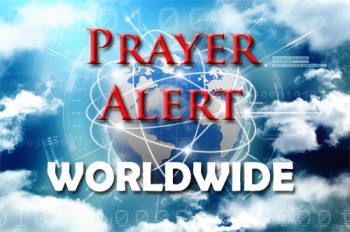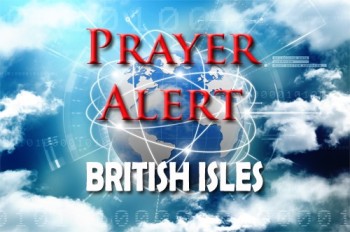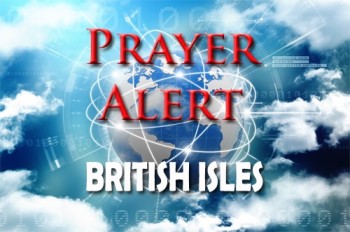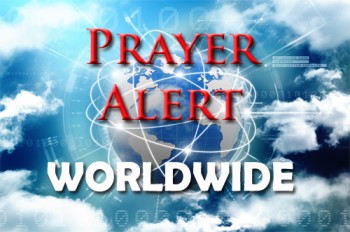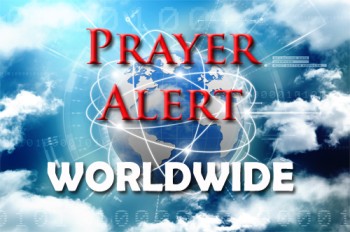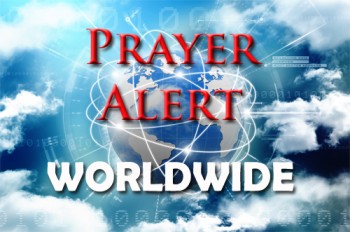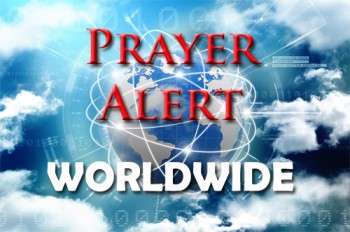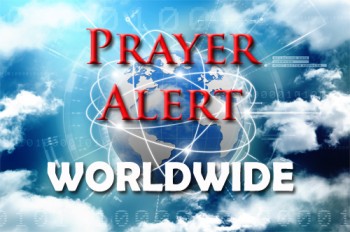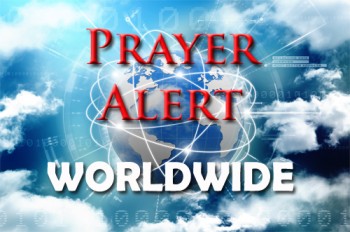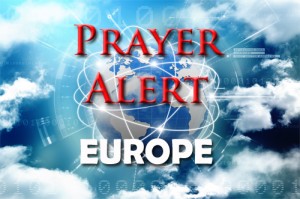Displaying items by tag: journalists
Israel again the deadliest country for journalists
Reporters Without Borders (RSF) report that 2025 was the third consecutive year in which Israel was identified as the deadliest country for journalists; 29 Palestinian reporters were killed amid Israel’s ongoing military campaign in Gaza. The organisation stated that 67 journalists were killed worldwide, noting that many deaths occurred in conflict zones where reporters were ‘targeted for their work’. It criticised what it called a failure of international bodies to protect journalists, and highlighted a global decline in governmental courage to defend press freedom. Mexico ranked second with nine journalist deaths, while Ukraine and Sudan also remained highly dangerous environments for media workers. RSF also said that 503 journalists are currently imprisoned globally, with China (121), Russia (48), and Myanmar (47) leading in detentions; 135 journalists are missing, and twenty are being held hostage. Press freedom groups continue to condemn Israel’s restriction of independent media access to Gaza, where monitoring groups claim that hundreds of journalists have been killed over the past two years.
Government criticises Russia’s ‘gangster threat’ against journalists
The Government has condemned former Russian president Dmitry Medvedev's threats against The Times journalists, labeling his rhetoric as desperate and unacceptable. Medvedev, a close ally of Vladimir Putin, described the journalists as 'legitimate military targets' following their coverage of Lieutenant General Igor Kirillov's assassination (see Europe article below, ‘Russia: senior general assassinated’), for which Ukraine claimed responsibility. The Times had described the act as 'a legitimate act of defence’, prompting Medvedev's hostile comments. Keir Starmer’s spokesperson reiterated the UK's commitment to press freedom, a cornerstone of democracy, and emphasised the Government’s resolve to protect its citizens and media against threats. David Lammy called Medvedev’s statements a 'gangster threat' that underscores Moscow's desperation. Medvedev also extended his threats to NATO figures aiding Ukraine, further highlighting the volatile rhetoric from Russian leadership amid the ongoing conflict.
Journalists strike over planned sale of Observer
Journalists at The Guardian and The Observer will stage two 48-hour strikes in December to protest the proposed sale of The Observer to Tortoise Media. The National Union of Journalists (NUJ) announced the industrial action after members overwhelmingly voted in favour of striking. The NUJ has criticised the Guardian Media Group (GMG) for acting in 'poor faith’, revealing during negotiations that the sale recommendation had already been agreed upon despite earlier assurances to the contrary. The NUJ general secretary said that members had no choice but to act in defence of The Observer’s heritage and its commitment to public-interest journalism. A Guardian spokesperson acknowledged the concerns but defended their approach, stating that talks with the NUJ continue and emphasising their priority to sustain liberal journalism amidst a challenging media landscape. The union insists GMG must pause the sale and address journalists' and readers' concerns.
Global: ‘a journalist is killed every four days’
A recent UNESCO report shows that the number of journalists killed worldwide surged in 2022-23, with a significant increase in fatalities. On average, one journalist was killed every four days, highlighting the growing danger faced by media workers. The total number of journalists killed during this period reached 162 - a 38% rise. Latin America and the Caribbean accounted for the most deaths (61). In 2023 the majority of journalist killings took place in conflict zones, a reversal of a long-term decline in such deaths. The report also highlighted the alarming issue of impunity; 85 percent of journalist killings remain unsolved. 14 women journalists were killed, and the Palestinian territories saw the highest number of fatalities, with 24 journalists killed in the line of duty. UN secretary-general Antonio Guterres has called on governments to take ‘urgent steps’ to protect journalists and investigate and prosecute all crimes against media workers.
Pakistan: censorship on Imran Khan’s party ahead of election
There are allegations of extensive official censorship on coverage of Pakistan Tehreek-e-Insaf (PTI) ahead of the country's elections on 8 February. PTI, founded by former prime minister Imran Khan, is considered one of the most popular political parties in Pakistan. However, he has been imprisoned since August 2023, facing corruption and state secrets leakage charges which he claims are politically motivated. Censorship against PTI has increased since Khan lost a confidence vote in April 2022, leading to his resignation. The election commission has rejected nomination papers for Khan and other PTI leaders and stripped the party of its election symbol (a cricket bat), forcing many candidates to run as independents. Several journalists have admitted receiving official instructions not to use party symbols or identify candidates as PTI members. though the government has denied these claims. Media censorship has grown since May 2023, when PTI supporters protested against Khan's arrest. Government officials recently said that unrestricted internet access during elections cannot be guaranteed, citing technical issues.
USA: Portland police and press in riots
On 1 August, demonstrators in Portland damaged property and set fire to American flags and Bibles. Again, little law enforcement presence was visible, and no arrests were made. After weeks of similar violent rioting and nightly attacks, on 4 August federal officers saw their first night of state and local law enforcement support and experienced relative peace with crowds ‘subdued.’ Activity around the courthouse continues, but violence is diminishing after an increased state and federal law presence on the ground. It will remain until the authorities determine that the courthouse and other federal properties are safe. Although crowd sizes have dwindled from the thousands in July, observers on 6 August reported many people, including some with ‘press’ written on their outer garments (indicating journalists), continuing to throw glass and plastic bottles at police officers.
India: coping with coronavirus
India's home minister has offered 500 railway carriages for use as makeshift coronavirus hospital wards as New Delhi struggles to contain a spike in cases. Delhi has about 9,000 beds dedicated to Covid-19 patients among public and private hospitals, but a panel of experts has said that at least 15,000 beds will be needed by the end of June. The health ministry is reporting jumps in coronavirus infections nationwide. At least 55 journalists faced arrest, physical assaults, destruction of properties and threats for reporting on Covid-19 or exercising freedom of opinion during India's lockdown. It did not take long for the state and political activists to allege the journalists’ reports were prejudicial to maintaining national harmony. India has become the riskiest place in the world for journalists.
Nepal: press freedom
Nepal has a constitutional obligation to guarantee press freedom, but over ten journalists have been threatened for their coronavirus reporting since late March. One victim of death threats is the manager of Radio Janakpur, threatened after his programme described the carelessness of a coronavirus tracking centre established by a local hospital. As he left his radio station he was accosted. He now feels ‘constantly under surveillance’ whenever he goes to Janakpur. A reporter for another radio station and website was accused of sowing fear and spreading fake news after he covered the case of a woman placed in quarantine. While the ruling party and regional officials try to control media coverage and intimidate reporters, the opposition Congress Party also threatens journalists. A website editor was told, ‘You could lose your life for writing such news’, after his site reported a politician for not cooperating in quarantining someone suspected of having coronavirus.
Widespread persecution of journalists
The risks journalists take when reporting on corruption continue. Ahmed Hussein-Suale, an undercover journalist working on an investigation with the BBC about corruption in Ghana’s football leagues, was shot and killed after a politician called for retribution against him. In Turkey, journalist Pelin Ünker was found guilty of ‘defamation and insult’ and sentenced to thirteen months in jail for her work on the Paradise Papers investigation into offshore tax havens. Turkey has the world’s worst record for jailing journalists - 68 in prison at the end of 2018, all of them facing charges of crimes against the state. Journalists play a vital role in exposing the corrupt and their methods; but they face threats, violence, arrest, and death as a result. Since 2017, over 190 journalists have been incarcerated worldwide for reporting on corruption. See also
Slovakia: press freedom
Transparency International reported, ‘Unfortunately this week we were reminded again of the terrible risks facing journalists who report on corruption. Ján Kuciak, a Slovakian investigative journalist, and his fiancée were shot dead in their home. Ján had been investigating Mafia activity in Slovakia - including suspected links to the highest levels of the Slovak government. Police confirmed that his murder was most likely linked to his investigative work.’ This delved into the Slovakian ‘Ndrangheta Mafia, one of the world’s most powerful and fearsome criminal groups, which holds a dominant position in Europe’s cocaine market and many other criminal fields, including weapons trafficking, fraud, corruption, intimidation, and extortion. One in five of the journalists killed since 2012 were covering a corruption story. Research reveals that countries with the least protection for press and activists also have the worst rates of corruption. Progress against corruption globally is stalling.
